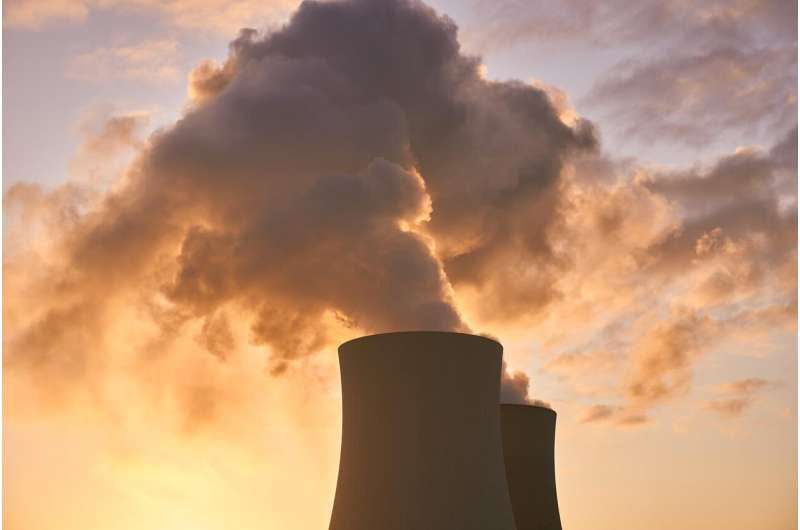'Not all is lost' in climate change fight after Supreme Court limits EPA's regulatory power

The Supreme Court Thursday issued a ruling limiting the Environmental Protection Agency's ability to regulate carbon emissions from power plants.
The 6-3 vote along party lines called into question the federal agency's regulatory authority by suggesting that it does not have the power to cap carbon emissions from power plants through a 1970 law called the Clean Air Act.
"Capping carbon dioxide emissions at a level that will force a nationwide transition away from the use of coal to generate electricity may be a sensible 'solution to the crisis of the day,'" Chief Justice John Roberts, representing the conservative-majority opinion, wrote. "But it is not plausible that Congress gave EPA the authority to adopt on its own such a regulatory scheme. … A decision of such magnitude and consequence rests with Congress itself, or an agency acting pursuant to a clear delegation from that representative body."
The language in the Clean Air Act, which the court examined in the context of the so-called "major questions doctrine," gives the agency the ability to regulate pollutants that "endanger human health," but does not explicitly mention carbon dioxide.
News@Northeastern spoke to Alexandra Meise, associate teaching professor of law at Northeastern, about the implications of this ruling for federal regulatory agencies and the collective ability to respond to the threat of climate change. Her comments have been edited for clarity and brevity.
First things first. What does this ruling mean for executive agencies' regulatory power moving forward?
The majority ruling here purports to be narrowly focused on whether a particular provision of the Clean Air Act authorizes the EPA to engage in certain types of policymaking to regulate carbon emissions at power plants. It says that Congress wasn't specific enough in authorizing the EPA to engage in this kind of activity; therefore, the EPA has exceeded its authority. That's the narrow focus of the opinion, but I think this has broad implications for the balance of powers within our government, and the ability of the executive branch to engage in regulation pursuant to legislation.
When can the executive agencies take certain steps? Congress recognizes that it does not know everything—and it can't possibly know everything when it engages in certain kinds of lawmaking. That's why we've recognized that Congress has the power to delegate to executive agencies that contain experts—and expert knowledge in certain areas—how to actually implement certain policies that Congress is trying to advance in its legislation.
[Thursday's] ruling opens up opportunities for litigation challenging executive agency regulations on all sorts of matters. From Health and Human Services, the Department of Housing and Urban Development, to the [Food and Drug Administration], we have all these executive agencies that do a lot of things that affect our daily lives: food safety, drug regulation, how Title IX should be interpreted and applied in our schools, etc. There are a lot of questions raised by the decision as to how courts going forward may interpret the authority of executive agencies to regulate.
What do you take away from this decision as it relates to the U.S.'s ability to combat climate change and meet its emissions targets? Is it still possible to devise solutions within a more limited regulatory environment?
Climate change is a real threat. Not just to the United States, but to global geopolitics and economics. Experts have made this clear at both the domestic and international levels. In order for the world to meet our targets in reducing carbon emissions—which experts say is necessary to keep our global temperature rise below the magic level to avoid the catastrophic consequences of climate change—we need to regulate carbon emissions. So what the court has done [Thursday] is say that the EPA cannot do certain kinds of regulation. But, it didn't say it can't do any. It's just going to make it harder.
There will be options—they just won't be as broad and sweeping. They will just have to be more specific to the technical nature of power plants. Not all is lost, but it's certainly going to make it harder for broad climate policies to be enacted through federal agencies.
How do you think the Biden administration will respond to this decision in the short term given the increasing urgency around climate change?
The regulation at issue here currently wasn't in effect, and the Biden administration has said it wasn't going to re-enliven the Clean Power Plan (an Obama-era EPA rule from which this case resulted); it said it was planning on engaging in some policy and rule-making with regard to emissions and other climate measures this year, perhaps this summer. Obviously in the wake of this decision they're going to have to factor that into what it is they are going to propose. But they already had plans in the works anyway.
As has been said by experts and by members of this administration, we need bold action to reduce our carbon emissions. Power plants are one of the greatest contributors to the United States' emissions. So that is obviously a place where the administration is looking to curb emissions; but the administration has also been engaging in policymaking on issues of transportation, promoting clean transportation and local action to increase access to transportation, as well as initiatives to increase climate resilient infrastructure across the country.
Coming out of [Thursday's ruling], it may be harder to enact certain broad types of measures that affect how America gets its energy and the energy markets more broadly. But that doesn't mean we can't take smaller steps to still advance toward that goal. Now, there are some inefficiencies in that, but it doesn't mean we can't reach our goal.
Provided by Northeastern University




















